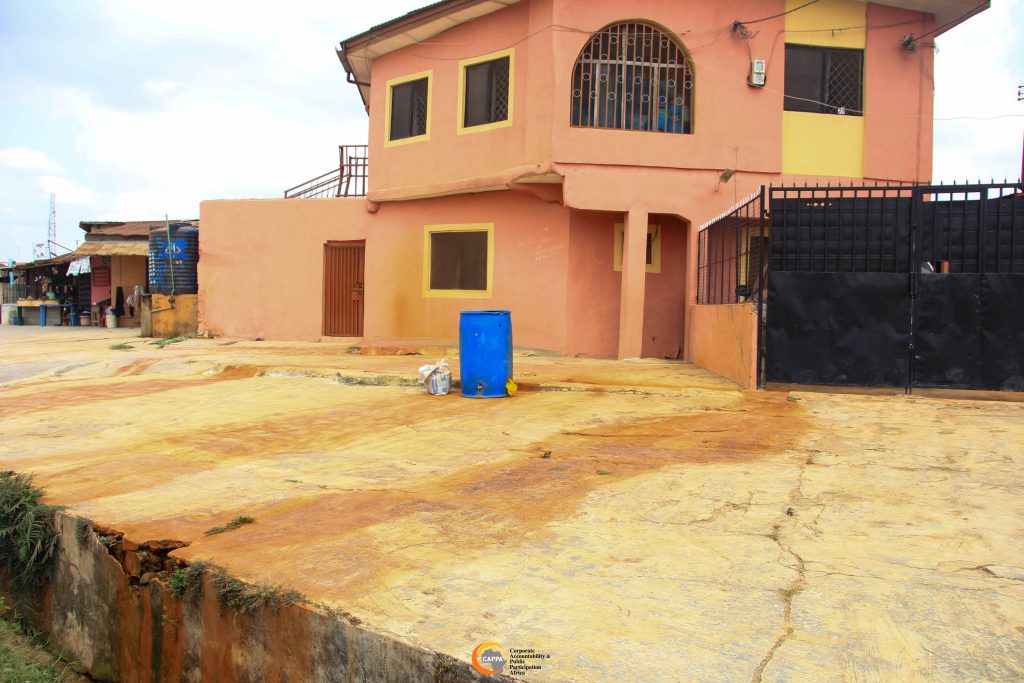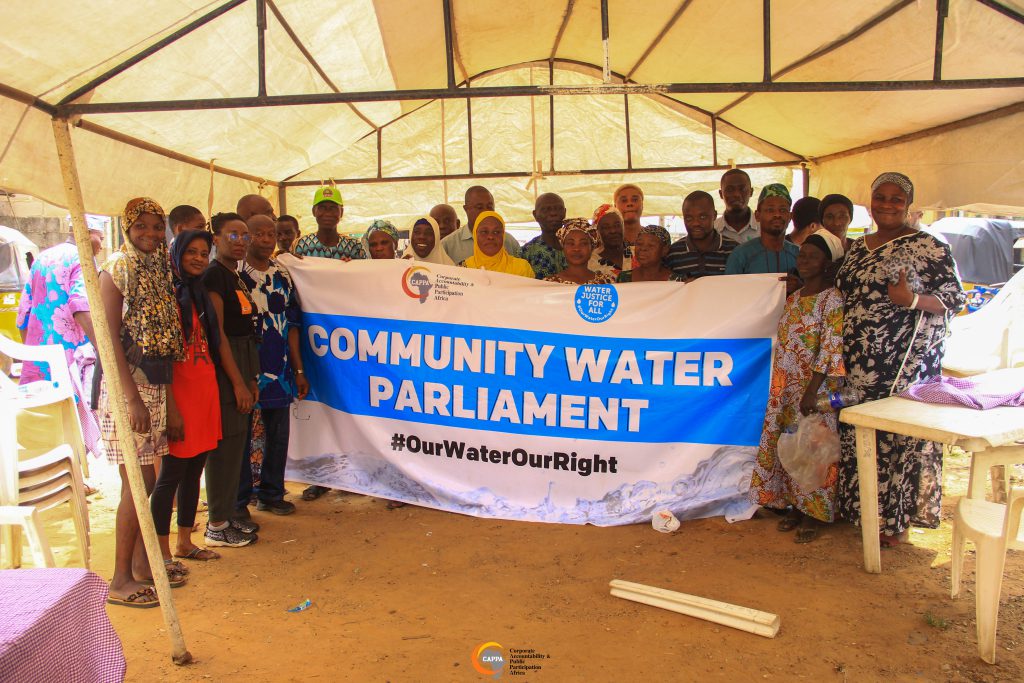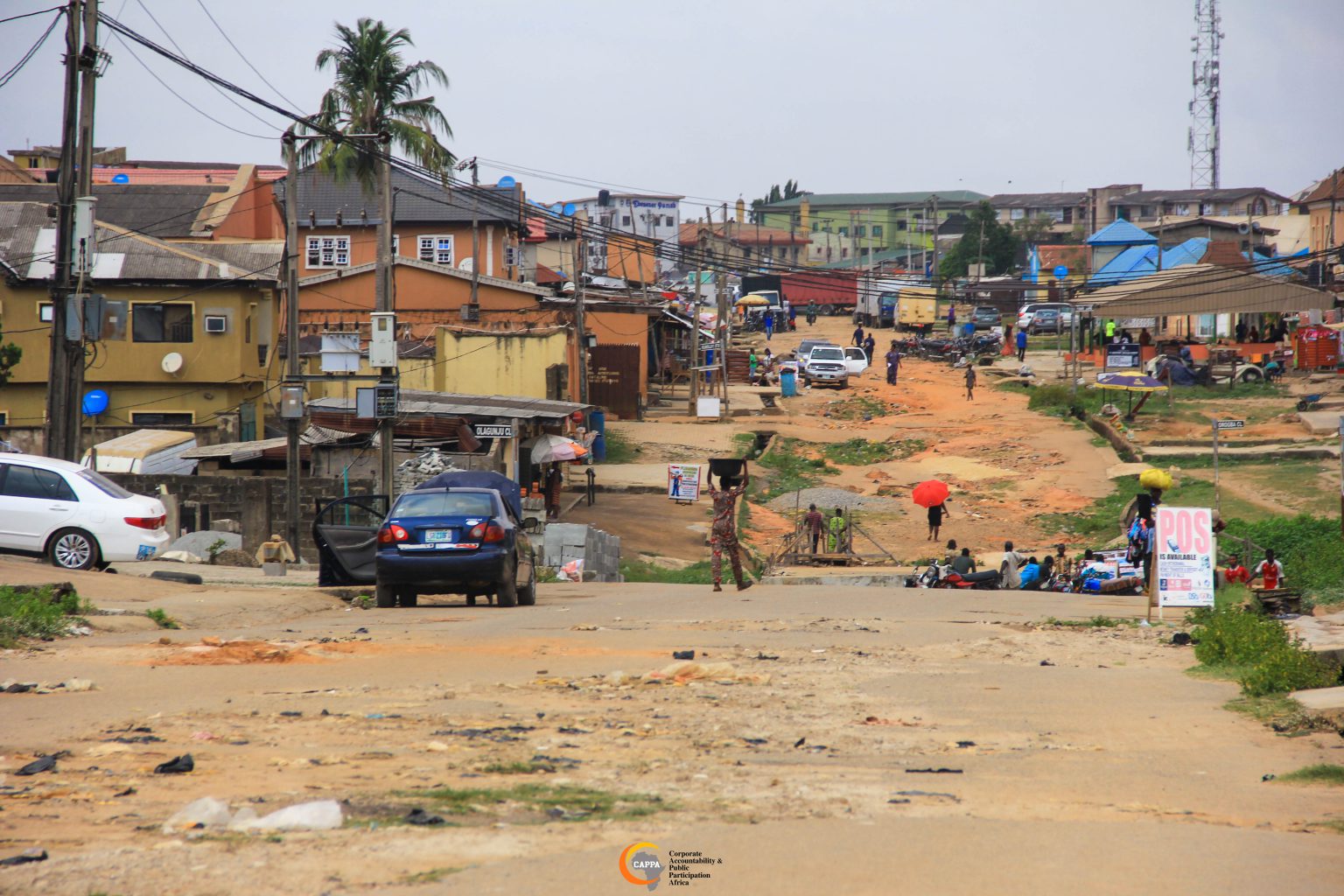Following reports of water contamination in some parts of Lagos State and ahead of the World Water Day on March 22, 2024, Corporate Accountability and Public Participation Africa (CAPPA)’s water team members SEFA IKPA and GIDEON ADEYENI visited Iludun Town, in Agege Local Government Area (LGA), where residents narrated their water challenges. A resident, Mrs. Felicia Fagbemi, told CAPPA that they had been deprived of potable water for over 15 years since an oil pipeline that runs through four communities in the area was damaged by the contractors allegedly hired by the state to construct a bridge. Excerpts…
CAPPA: How long have you been experiencing water contamination in this area?
Fagbemi: It’s been a long time, over 15 years now. It started when an oil pipeline was damaged. The fuel in the pipe seeped into the underground water and contaminated it. It also seeped upwards, into the soil above the pipeline. The contamination led to the colouration of our paved floors, making them brown.

CAPPA: How has the water contamination affected people in the area?
Fagbemi: Everybody has been complaining. In fact, many people stopped renting houses in this area because of the contamination. Many people complain about the water being bad. It is not as bad as it used to be now though. It used to be much worse.
CAPPA: How have you been coping?
Fagbemi: We have been buying water because aside from flushing, the water we get from the ground is not useful for anything else. We can’t even wash with it. If one washes a white cloth with it, the cloth gets spoilt, and one won’t be able to wear it again.

CAPPA: Where have you been getting the water that you drink?
Fagbemi: We buy pure water to drink, every day, and we have been buying “pure water” (water in sachets) for over ten years, in this area. This was not the case before, we used to drink water from boreholes.
CAPPA: What steps have you taken to solve the problem?
Fagbemi: We have made many efforts. We, the women, once went to the men, to say that we are the most impacted, as we cannot get water to cook. We, as a women’s group, also went to the chairman of the local council at Ojokoro to report that our water was neither drinkable nor useful for washing. They promised to take action, but we didn’t see any change.

CAPPA: What is your request to Nigerian National Petroleum Company Limited (NNPCL) and the Lagos State Government?
Fagbemi: What we want is for them to help us pay attention to the issue. We do not want damaged pipelines in the area again. They should monitor the pipeline because the contamination from it is depriving us of potable water.
CAPPA: Thank you!


